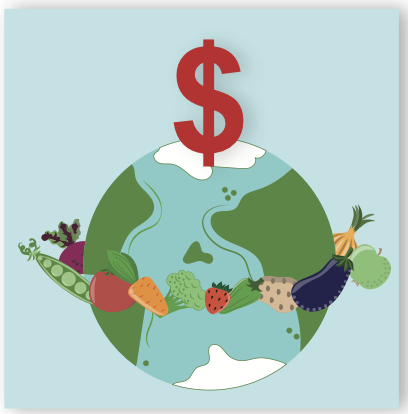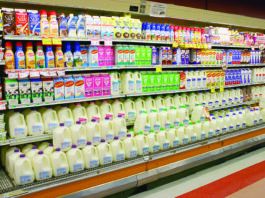Fat Choices Better But Still Fall Short
Results from the Minnesota Heart Survey, spanning nearly 30 years and encompassing 12,526 participants, show some progress in healthier fat consumption-but still a long way to go. Published in the Journal of the American Heart Association, the study reported that consumption of trans fat and saturated fat has dropped. Overall trans fat intake fell about a third, but is still about double the target of less than 1% of calories set by the Heart Association in 2006. Saturated-fat intake fell from 13.7% of total calories to 11.4% for men and from 13.5% to 11.4% for women. Thats still above the 10% maximum recommended by the Dietary Guidelines for Americans and far more than the Heart Associations 5%-6% goal.
US Diabetes Rates May Have Plateaued
A new report from the Centers for Disease Control and Prevention suggests the rapid rise in US diabetes rates may be flattening out, possibly due to a similar slowing in increases in obesity. Published in JAMA, the report looked at data on more than 660,000 adults from the National Health Interview Survey. Although incidence of new diagnoses of diabetes had shot up from 3.2 per 1,000 people in 1990 to 8.8 in 2008, that rate actually dropped to 7.1 in 2012. Overall prevalence of diabetes, which rose sharply from 3.5 per 100 Americans to 7.9 from 1990 to 2008, increased only slightly to 8.3 by 2012.
New Chain-Restaurant Items Lower in Calories
If youre worried about calories when eating out at a chain restaurant, ask whats new. A recent analysis of nearly 20,000 menu items from 66 of the largest US chain eateries found that newer choices tended to contain fewer calories than the chains old standbys. That could be a reflection, researchers speculated, of restaurant companies concerns over federal rules requiring them to disclose calorie counts on menus. On average, new menu items such as wraps, salads and grilled chicken contained nearly 60 fewer calories-a 12% difference. Overall calories didnt change, however, nor did the calories in companies core products, such as the hamburgers at burger chains or pizzas at pizza restaurants.
Poll: Most Americans Still Dont Get It on Fats
Science may have debunked the low-fat fad, but most Americans still havent gotten the word. A Gallup poll reports that nearly twice as many of us are trying to avoid fat in our diets (56%) as those seeking to cut down on carbohydrates (29%). Among the 29% who say they are trying to lose weight, 73% are actively avoiding fats compared to 44% cutting down on carbs. Thats despite recent headlines reporting that low-carb diets are more effective than low-fat plans for weight loss.
Poultry to Overtake Pork
Sorry, Porky, your time at the top is almost over: Within the next five years, the worlds most popular meat will become poultry. According to a report from the Organisation for Economic Co-Operation and Development, the slow growth rate of pork will lead to it being overtaken by chicken, turkey and other poultry products by 2020. Poultry is expected to take over in almost every region and country, including both developed and developing nations. By 2023, poultry is projected to account for half of the additional overall meat consumption. In the US, beef and pork consumption are expected to stay flat or decline slightly, while poultry will more than make up for the combined trend.
Lower Incomes Lag as US Diets Improve Slightly
Americans are eating a slightly healthier diet than a decade ago, but low-income adults are falling behind in diet quality, according to a new study published in JAMA Internal Medicine. Using a Healthy Eating Index they devised, Harvard School of Public Health researchers compared eating habits from 1999-2000 and 2009-2010. Data came from national nutrition and health surveys, plus government estimates on trans fat intake.
Dairy Loses Luster in Proposed FDA Label Changes
A dairy-industry group is expressing concern over proposed changes to Nutrition Facts labels that might make milk and yogurt appear less nutritious. Under an overhaul unveiled by the US Food and Drug Administration earlier this year, the amounts used to calculate Daily Value (DV) percentages for three key nutrients would be increased: vitamin D, from 10 to 20 micrograms; potassium, from 3,500 to 4,700 milligrams; and calcium, from 1,000 to 1,300 milligrams. That would drop milk below the 20% threshold to be labeled as an excellent source of vitamin D, and milk and yogurt under the 10% cut-off for good source labeling for potassium.In comments submitted to the FDA about the proposals, the International Dairy Foods Association complained that the changes mean such dairy foods will appear to have a lower nutritive value, even if no changes have been made to the product. The trade group warned that the recalculations have the potential to significantly change consumers perceptions of the nutritional profiles of certain foods.
Dieting Going DIY
Despite recent CDC reports that nearly half of US states have obesity rates exceeding 30%, Americans are losing interest in diet plans and weight-loss products. A new survey by the Packaged Facts market-research firm says 28% of American adults are trying to lose weight and another 14% are trying to avoid extra pounds. But weight-conscious consumers are looking to foods like Greek yogurt and oatmeal to feel full, instead of buying diet foods. The report cites the increasing tendency of consumers to turn away from formal diet plans imposed by outside authority and to conflate dieting with healthy eating.… DIY dieters increasingly embrace their own private healthy eating and exercise regimens as the path to weight-loss success.Women continue to outnumber men among dieters, according to Packaged Facts, with the core of weight-loss dieters being non-Hispanic white women ages 55-plus. With the exception of significantly overweight people, however, weight-watchers are now more likely to be satisfied with not gaining pounds, rather than actually losing weight.
Coffee Genome Cracked
Scientists whove succeeded in sequencing the 25,574 genes of a leading variety of coffee plant say their breakthrough could improve taste, boost coffees health benefits and even lead to naturally decaffeinated coffee. The international project mapped the genome of Coffea canephora, which accounts for 30% of the worlds coffee crop. This knowledge can be used to breed varieties that meet the demands of growers, processors and consumers, such as resistance to leaf rust disease, said the Biodiversity International research group, a partner in the project. Identifying the genes responsible for caffeine production could make it possible to grow caffeine-free coffee beans, it added, noting that 12% of the 2.2 billion cups of coffee consumed daily worldwide are decaf.
Pictures Beat Numbers for Sugar Avoidance
Would you be less likely to guzzle that 20-ounce cola if the bottle pictured a pyramid of 26 sugar cubes-an amount equal to the 65 grams of sugar in the soda? A new study published in the journal Appetite suggests that such visual representations can help consumers avoid added sugars, and that the effect lasts beyond the initial drink-or-no-drink decision. In a series of four experiments, researchers tested participants ability to understand representations of sugar in grams (one sugar cube equals 2.5 grams) and reactions to seeing those quantities pictured as stacks of sugar cubes. After seeing the sugar cubes, participants rated sugary drinks as less attractive and reported they would be less likely to consume them. In an ostensibly unrelated experiment, those whod learned to think of grams in terms of sugar cubes were later less likely to select sugar-sweetened beverages.

























